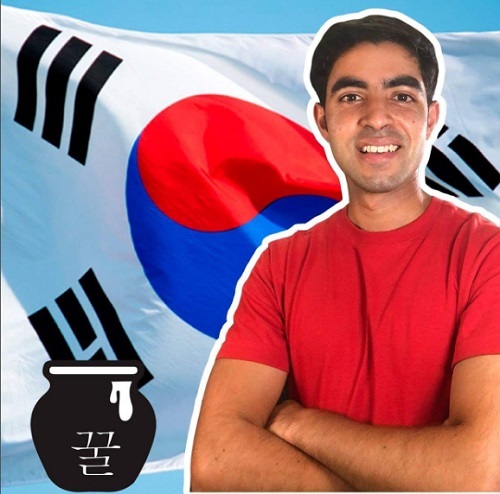- 한국어
- English
- 日本語
- 中文
- العربية
- Español
- Français
- Deutsch
- Pусский
- Tiếng Việt
- Indonesian
By Honorary Reporter Kelly Nicolle Medina from Colombia
Photo = Max Arenas

Max Arenas
Max Arenas, a 24-year-old Colombian producer, works in Korea. Graduating with a degree in broadcast media technology from Korea University of Media Arts, he said he strives to share Korean culture, history and customs. He is currently living and working in Korea.
The following are excerpts from a written interview with him on Jan. 30.
Where do you work?
I work at the agency Funday Korea Networks (now known as JobpassKorea), which serves public institutions such as the Ministry of Foreign Affairs, Korean Culture and Information Service and Korea Tourism Organization for the dissemination of Korean culture to foreign audiences through digital content.
Why did you decide to work in Korea?
Korea is my second home. When I was little, I always had many Korean friends at school and embraced their culture. It's almost like I owe part of my adolescence to Korea. As an adult, I feel that Korea represents freedom, opportunity, and personal and professional challenges that have developed me as a person.
How is working in Korea compared to Latin America?
Working in Korea isn't easy but that's exactly why I love it. No challenge means no growth. It's undoubtedly a challenge to have to perform in a work environment in your third language, with people who think differently from you and in a country with social dynamics very different from Colombia.
Koreans work great as a team, are efficient and make things happen. They are extremely systematized and work together for a common good. In Latin America, people are flexible, quickly adapt to the needs of each moment and contribute their creativity to solve problems. Views on labor in Korea and Latin America differ considerably, however.
How much Korean proficiency is necessary for a job?
It depends on the company and position you apply for. If you're an analyst of international markets or foreign trade, you most likely don't need even basic Korean, and the same goes for teaching English conversation. If the job requires communication in Korean with a team of people or clients and interacting with Korean society, you definitely need it.
Unlike universities, most companies in Korea don't ask for any certification. If you can speak Korean, it'll be evident at the job interview. If you can't speak Korean, even a top score on the Test of Proficiency in Korean won't make it easy for Koreans to trust your teamwork skills. That's the importance of developing verbal skills in the language.
What is the work culture like in Korea and how are your colleagues?
My company has many foreign staff, almost half, and an environment that is mixed, multicultural and open to new ideas. I love my co-workers.
The work culture is very collective. Koreans are highly organized and systematized as I mentioned earlier. They always eat together and hold meetings frequently but everyone knows their place. They know that the office is a professional, not personal, place and are clear about job titles like team leader (team jang), section chief (bujang), assistant manager (daeri), director (isa), CEO (daepyo) and boss (juim).
How did you find the job?
I did my internships at my company after graduating from university after sending my resume and searching on my own. The recruiting process was simple as the company knew what I could do. We knew what to expect from each other and what I contribute to the company's vision.
Did the company sponsor your visa?
Yes. The process was not that complicated for me but was for the company. The process took several weeks because the company had to justify why it needed me over a Korean. I now have the E-7 (foreign national of special ability) visa.
What advice do you have for those who want to work in Korea?
I always tell people that Korea isn't for everyone. You must know what you'll face and the challenges ahead, but if you're sure about Korea and prepare well, you'll fall in love with this incredible country as I did.
kalhong617@korea.kr
*This article is written by a Korea.net Honorary Reporter. Our group of Honorary Reporters are from all around the world, and they share with Korea.net their love and passion for all things Korean.
Most popular
- Korea.net welcomes 2025 K-influencers, Honorary Reporters
- 2025 Honorary Reporter class pledges to spread 'real Korea' worldwide
- US urged to exempt tariffs on Korea in first '2+2' trade talks
- 'Gangnam Style,' 'Baby Shark' make YouTube's 2005-25 best list
- Korean culture festival in Cuba marks 1st year of bilateral ties
